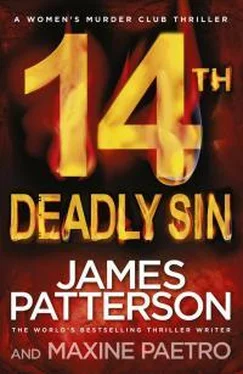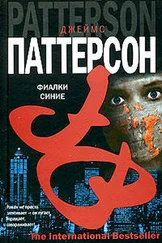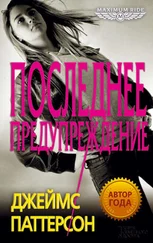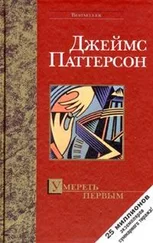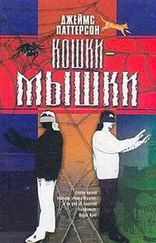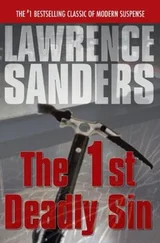CHAPTER 52
I TOLD VASQUEZ and Swanson we’d catch up to them later, but first I wanted to chat with Clapper.
The front door opened and closed, and Conklin and I were alone in a brightly lit living room with CSIs taking pictures, dusting for prints, and swabbing for trace.
Conklin and I had to piece all this into a narrative that made sense, something that would explain what now seemed inexplicable.
Conklin said, “What do you think happened here, Charlie?”
“My opinion? A couple of guys wanted something, and they were willing to torture and murder four people in order to get it,” he said. “What did they want? Don’t know. Did they get it? Don’t know that, either. It wasn’t a robbery. Nothing was tossed. There’s small cash and jewelry on the dresser in the bedroom.”
He didn’t have to tell us to be careful. We followed in his footsteps as he showed us that the lock had been shot off the back door as well as the front. That told us that at least two shooters were involved.
Dr. Germaniuk, the medical examiner on call, came back into the house and said he was taking Tom Calhoun to the ME’s office now if that was OK. Clapper said, “Go ahead. We got what we need.”
Then Clapper said to my partner and me, “The wife had duct tape residue on her wrists and ankles and across her mouth, so she’d also been taped to a chair. I’m guessing she was cut loose and beaten while her husband was still alive and watching.”
I said, “Oh, my God” a few times, and Conklin looked like he wanted to punch the wall. I asked Clapper to go on.
“Here’s how it probably went down,” Clapper said. “The family was upstairs, probably asleep. The doers shot out the locks and entered. Calhoun probably came downstairs.”
“He had to be armed,” I said.
“His nine was found in the living room. Fully loaded. The gun is bagged and ready to go to the lab.”
“So Calhoun comes down the stairs with his gun,” I said. “He didn’t shoot?”
“He was outgunned. Outmanned. I think he tried to negotiate. I imagine he told the perps, ‘Get out. Nothing’s happened yet,’ something like that. The doers maybe turned it around on him.”
Conklin said, “Like, ‘Come into the kitchen and let’s talk. We’ll leave your family alone.’”
“Yeah,” Clapper said. “Something like that. Then maybe the wife comes down the stairs.”
Conklin said, “Right. They take the gun from Calhoun. Move him and his wife into the kitchen.”
“Oh, man,” I said visualizing the scene, the terror. I saw the shooters telling the Calhouns to get undressed. She has to duct-tape her husband to the chair, then one of the shooters does the same to her.
Putting the next part of it together in my mind, I figured Mrs. Calhoun was tortured to motivate Calhoun to give them what they wanted. What did they want? Did Calhoun have it?
We followed Clapper upstairs to the bedrooms and saw the blood-drenched sheets in the bunk beds where the two boys had been shot in their sleep. They were now in body bags on the way to the morgue with their parents.
My partner and I stood in the open front doorway with lights flashing red and blue behind us and thanked Charlie for the tour.
He didn’t have to say, “Get these bastards,” and I didn’t say, “Call us if you learn anything.” We all knew what we had to do. Calhoun’s death was job one. Every cop in the Hall of Justice would be on this until the Calhouns’ killers were found. The work would go on all night and it would continue until it was over.
But there was nothing for my partner and me to do in this house. Not tonight.
CHAPTER 53
WHEN I WALKED into our apartment and kicked off my shoes, Jimmy Fallon was on the tube and I no longer felt like the same woman who’d spent the day with windblown dog ears in my face, who had walked and talked with my sister and nieces, who had cuddled with my husband and baby, laughed over nouvelle cuisine, and slugged down beer with two of my best friends.
I briefed my husband on the aftermath of the torture and murder of a cop I knew, and his family, and gratefully accepted a glass of wine and a neck rub.
Then I got on the phone. My first call was to Dr. G., followed by a conference call with Brady and Conklin. After that, I called Ted Swanson, who was not only emotionally involved, but had also been part of the Robbery Division team working the Windbreaker cop case with Vasquez and Calhoun.
When I had all the available information, I called Jacobi, our chief, my dear friend and former partner, and brought him up to the minute. He already knew parts of the Calhoun tragedy, but I gave him a few details he didn’t know.
“A roll of garbage bags had been left on the kitchen counter,” I told Jacobi. “I think the perps changed their clothes and took their bloody ones with them, along with their cigarette butts, shell casings, and sharp instruments.”
Jacobi said, “So let me guess. No prints. No DNA.”
“Nothing yet,” I said.
Jacobi used strings of expletives in combinations I’d never heard before. The gist of the F-bombs was that all the freaking over-the-top TV crime shows had taught the freaking criminals what not to freaking do.
“They knew a few things from experience,” I said. “It was a very buttoned-up operation.”
I let Jacobi rant for a while, then told him good night, and when I finally hit the sheets, I couldn’t sleep.
I was organizing the case in my mind, getting ready for the squad meeting in the morning, doing all that thinking while lying with my head on my husband’s chest, listening to him sleep. My thoughts circled in and around the Calhoun house, where people had been sleeping in their beds.
I had a bad fantasy of the same guys breaking into our nest on Lake Street. I heard locks being shot off doors. In this bad fantasy, I got my hands on my gun, but it wouldn’t fire. My fantasy didn’t go any further, thank God.
But sleep became an impossible dream.
When Julie woke up at three, I walked her around the living room and looked out at the street below to see if anyone was lurking in an idling car. At six I took Martha for a quick run, and by seven fifteen I was at my desk in the Homicide bullpen.
Conklin arrived a few minutes later. He hung his jacket behind his chair and said, “I had a dream.”
I looked up at him. He wasn’t kidding.
“I woke up thinking there’s a connection between what happened to Calhoun and the Wicker House shootings.”
“What was the connection?” I asked.
“I’m still thinking about it.”
“OK,” I said. “Your subconscious is making a link. Probably from all the dead bodies. All the blood.”
“Probably,” my partner said. “But there is something sticky about those two things together.”
Just then, Richie got a call from Cindy, and then a ragged-looking Brady dropped by our desks. He said to me, “At eight o’clock. You can brief everyone, right?”
“No problem.”
The squad room filled with cops. Some sat behind their desks, others parked themselves in spare chairs, and more cops stood three deep at the back. The room was packed with the day shifts from Homicide, Narco, and Robbery.
Swanson and Vasquez stood at the front of the room with me and I introduced them. Then I told about sixty of my fellow officers what we knew about what had gone down in the green Victorian house on Texas Street.
Brady gave out assignments. And then we went to work.
CHAPTER 54
CONKLIN AND I brought Swanson and Vasquez into Interview 2. When we all had coffee in front of us and were settled in, I started by saying, “I can only guess at how rotten you feel. We need everything and anything that could help us with the Calhoun murders. Anything you may have heard or surmised about enemies, disagreements, contacts with informants, shady business dealings, a fight over a parking spot—it doesn’t matter how unlikely it might seem to you.”
Читать дальше
